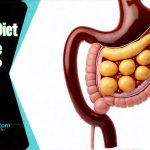Many people enjoy an occasional alcoholic beverage – it’s often woven into social gatherings, celebrations, or simply as a way to unwind. However, what many discover, sometimes unexpectedly, is that their reaction to alcohol can change, and not always for the better. It’s not necessarily a sign of declining health or reduced tolerance; frequently, it’s intimately linked to dietary choices. The seemingly simple act of altering your diet – whether through intentional restriction like keto or paleo, embracing plant-based eating, or even just reducing carbohydrate intake – can significantly impact how your body processes alcohol, leading to surprising and sometimes unpleasant effects. Understanding the ‘why’ behind this is crucial for responsible enjoyment and avoiding uncomfortable experiences.
The interaction between alcohol and our bodies isn’t a straightforward one. It’s influenced by a complex interplay of factors including genetics, hydration levels, body composition, and, critically, what we’ve eaten (or haven’t eaten). Alcohol metabolism happens primarily in the liver, but its initial breakdown is affected by enzymes found throughout the digestive system. When you change your diet, you alter the entire metabolic landscape, influencing how quickly alcohol is absorbed, processed, and eliminated. This isn’t about ‘weakening’ your tolerance; it’s about changing the conditions under which alcohol is metabolized. The key lies in appreciating that dietary changes affect not just what fuels our bodies, but also the very mechanisms by which we process substances like alcohol. If you are concerned about how diet impacts this, consider reading alcohol and acid reflux.
Dietary Changes & Alcohol Metabolism: A Deeper Look
The most common reason for altered alcohol reactions related to diet stems from shifts in carbohydrate intake. Alcohol metabolism prioritizes itself over other metabolic processes – essentially, your body recognizes alcohol as a ‘toxin’ and focuses on eliminating it first. This temporarily halts the breakdown of fats and carbohydrates. When you’re consistently consuming a high-carbohydrate diet, your body is accustomed to processing glucose (from carbs) for energy. Introducing alcohol doesn’t dramatically disrupt this established metabolic pathway. However, when carbohydrate intake is significantly reduced – as in keto or low-carb diets – the body switches to burning fat for fuel, producing ketones. This shift changes everything.
The presence of ketones alters how alcohol is processed. The liver now has a dual task: metabolizing alcohol and processing ketones. This can slow down the breakdown of alcohol, leading to higher blood alcohol concentrations (BAC) even after consuming smaller amounts. Additionally, many low-carb diets encourage increased fat intake. While fats aren’t directly involved in alcohol metabolism, they do slow gastric emptying – meaning food stays in your stomach longer. A slower rate of absorption sounds beneficial, but it can actually lead to a more intense and prolonged effect when alcohol finally enters the bloodstream. This is because the body hasn’t had time to prepare for a sudden influx of alcohol.
Finally, diets that drastically restrict certain food groups – like eliminating fruit or grains – can deplete essential vitamins and minerals needed for optimal liver function. While not necessarily causing an immediate reaction, chronic deficiencies can impair the liver’s ability to efficiently metabolize alcohol over time. It’s also important to remember that dehydration is a common side effect of many diets (especially keto due to its diuretic effect), and dehydration exacerbates the effects of alcohol, leading to more severe hangovers. This relates to why some days you eat everything and feel fine, while others are different.
The Keto Connection: Fat Adaptation & Alcohol Sensitivity
The ketogenic diet specifically presents unique challenges when combined with alcohol consumption. Achieving ‘ketosis’ – where your body primarily burns fat for energy – requires strict carbohydrate restriction. This leads to a state called fat adaptation, where the body becomes highly efficient at utilizing fats as fuel. However, this very adaptation can increase sensitivity to alcohol’s effects. As mentioned previously, the liver is occupied with ketone processing alongside alcohol metabolism. A less-familiar factor is that ketones themselves can mimic some of the symptoms associated with intoxication – dizziness, nausea, and fatigue.
This means that even a small amount of alcohol can feel more potent on keto, as it’s layered upon pre-existing ketone-induced effects. Furthermore, the reduced glycogen stores (glycogen being stored glucose) in a ketogenic state mean there’s less readily available glucose to counteract the blood sugar fluctuations caused by alcohol. Alcohol can cause rapid drops in blood sugar, leading to weakness, shakiness and increased feelings of intoxication. It’s crucial for individuals following a keto diet to prioritize hydration, electrolyte balance (sodium, potassium, magnesium), and consume alcohol very cautiously – if at all. Prioritizing wellness also includes learning why saying no to plans can benefit your health.
Plant-Based Diets & Enzyme Inhibition
While often associated with health benefits, plant-based diets, especially those rich in certain compounds, can also influence how you react to alcohol. Many fruits and vegetables contain compounds that can inhibit the enzyme aldehyde dehydrogenase (ALDH). This enzyme is crucial for breaking down acetaldehyde – a toxic intermediate byproduct of alcohol metabolism. If ALDH is inhibited, acetaldehyde levels rise, contributing to flushing, nausea, headache, and increased sensitivity to alcohol’s effects.
Foods like citrus fruits, grapes, mushrooms, and even certain herbs contain compounds that can temporarily reduce ALDH activity. This isn’t necessarily a negative effect; in some ways, it’s a natural protective mechanism. However, if you combine these foods with alcohol consumption, the impact can be amplified. It is important to note this effect varies greatly between individuals due to genetic variations in ALDH enzyme production – some people naturally have lower levels of functional ALDH than others and may experience more pronounced symptoms. In cases where digestive issues are persistent, looking at digestive enzyme supplements might be helpful.
Hydration & Nutrient Depletion: The Universal Factors
Regardless of your specific diet, two universal factors significantly impact alcohol tolerance and reaction: hydration and nutrient depletion. Alcohol is a diuretic, meaning it causes the body to lose fluids through increased urination. Dehydration exacerbates all negative effects of alcohol – from headaches and nausea to impaired cognitive function and worsened hangover symptoms. This effect is magnified on diets that already promote fluid loss, such as keto or low-carb plans. Therefore, adequate hydration is paramount when consuming alcohol.
Furthermore, restrictive diets can lead to deficiencies in essential vitamins and minerals required for optimal liver function and detoxification processes. B vitamins (especially B1, B6, and folate) are crucial for alcohol metabolism, while magnesium supports liver health and reduces inflammation. Deficiencies in these nutrients impair the body’s ability to effectively process and eliminate alcohol, leading to a more pronounced and prolonged reaction. Ensuring adequate nutrient intake through a well-planned diet or supplementation is vital for mitigating these effects. It’s also worth remembering that consuming food before drinking slows down alcohol absorption – even a small snack can make a difference. Tips for reducing alcohol consumption are important, too. If gut health is an ongoing concern, consider why slow mornings help.
It’s important to reiterate that this information is intended for general knowledge and informational purposes only, and does not constitute medical advice. If you have concerns about your reaction to alcohol or are considering significant dietary changes, please consult with a qualified healthcare professional.


















